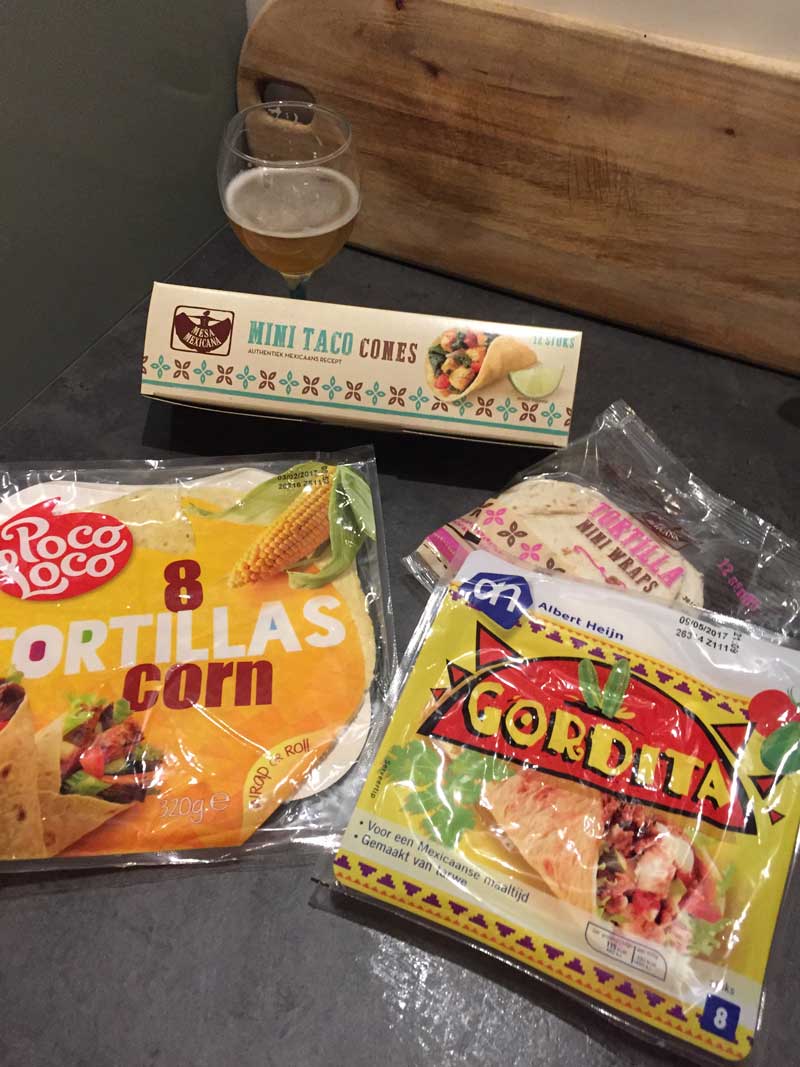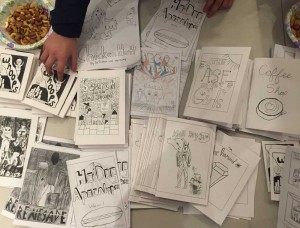
40 seventh graders wrote and illustrated comic books for a school project. So?
Let’s take a look at it from a marketing perspective and see what they did, learned and accomplished.
I was there to research what 7th graders create and consume. They were sellers and buyers at the same time. They are my (future) audience. Do I know them? Maybe, maybe not. Let’s see what we learned.
Do you do the research to figure out what your reader wants? Or who they are? Do you know anything about them?
The worst target audience is … Everyone! “Our product is perfect for everyone! Everyone will love it!”
[fusion_builder_container hundred_percent=”yes” overflow=”visible”][fusion_builder_row][fusion_builder_column type=”1_1″ background_position=”left top” background_color=”” border_size=”” border_color=”” border_style=”solid” spacing=”yes” background_image=”” background_repeat=”no-repeat” padding=”” margin_top=”0px” margin_bottom=”0px” class=”” id=”” animation_type=”” animation_speed=”0.3″ animation_direction=”left” hide_on_mobile=”no” center_content=”no” min_height=”none”]
Yeah, that’s not going to happen. When you target your product or service to everyone, you will attract … no one. But when you target a small segment of that market, you will then have a real audience that you can focus on, expand and please.
40 7th graders wrote and illustrated comic books for a school project.
Hmm, the Li & Lu book series is expanding to illustrated books with book #5 in the series (due out later this spring). Let’s see, what could we possibly learn by going to a local comic book shop and talking with the kids who are creating (and buying) comic books? Uh, tons?
The comic book shop owner didn’t take a dime of the profits and the kids were able to see how producing something can lead to real dollars in their pockets.
In talking with the artists and readers, we learned:
- You can’t judge a (comic) book by its cover. Oh wait, yes you can. And we do. My favorite book of the night had a cover that was nowhere near the quality of the inside pages. I picked up most books (which 98% of book-browsing shoppers would never do*) and flipped through them and there was often a big discrepancy between cover quality and inside content quality. I asked the author when I found her about the cover and she said that she ran out of time. Ah, production deadlines. Just part of the biz. Even if you’re 12.
- Putting your name on the book helps readers find you. That one I liked had no author’s name on it. I figured there were 40 kids in the place and they all knew each other, it wouldn’t take long to track down whose it was–and it didn’t. The illustrator didn’t really have an answer as to why her name wasn’t on the cover. She was super shy and was uncomfortable with the attention. Maybe it was intentional?
- Using a pen name is cute, but is going to make it harder to build a fan base. Some illustrators used pen names because, based on my questioning, they thought it was funny. This technique is only marginally less bad than not putting your name on the book at all as it just leads to confusion and when the parents know the names of all 40 kids in the room but not all 40 pen names in the room, it’s going to make it more difficult for your fans to find you.
- Create something and pride will come. The kids were visibly proud of their work. They imagined it, created it, produced it and marketed it. The energy in the room was palpable.
What did we learn in our expedition? When kids create, they build their pride. It doesn’t matter if what they create is garbage (although it helps if it’s good). They took the first step, they created something that someone else will consume. By the way, if it’s garbage, they can improve on it next time. But you can’t improve on nothing. They did something. In fact, they did something extraordinary.
- Possible: do a school project on comic books (but don’t actually create one)
- Impossible: learn without doing
- Repossible: create, produce, market and sell your comic books
* The other 2% are probably the illustrators’ parents.[/fusion_builder_column][/fusion_builder_row][/fusion_builder_container]






























Trackbacks/Pingbacks